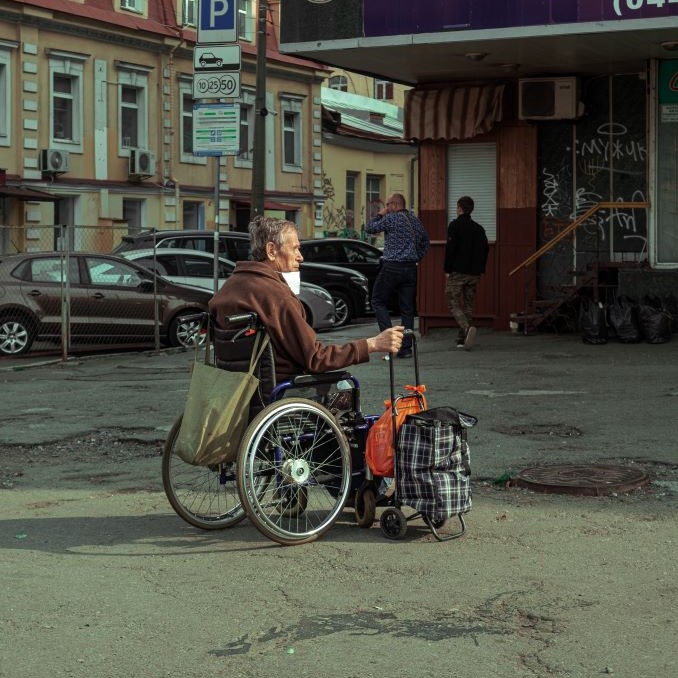Financial disability assistance differs greatly by province. Bill C-22, the proposed federal Canada Disability Benefit (CDB), passed its second reading before the New Year – to much fanfare. But it was clear it was too soon to celebrate. Canadians with disabilities desperately need the bill to pass third reading and move through the Senate quickly in 2023 so it can become law.

Too many disabled Canadians are financially struggling for this to drag out any longer.
According to the Disability Equality Statement on the Liberal Government’s own website, “Disability equality benefits everyone. When Canadians with disabilities have equal opportunities to contribute to their communities, to have the same quality of service from their federal government, to have equal opportunities to work and to enjoy the same quality of life as everyone else, we build a stronger economy – and a stronger country.”
Unfortunately, right now, Canada is far from disability equality.
Twenty-two percent of Canadians live with a disability but make up 41 percent of those who live in poverty.
People with disabilities do not have equal opportunity to contribute to their communities because there is often a disconnect between federal and provincial oversight of health, economic and social services. For example, provincial benefits are frequently clawed back when additional assistance comes federally.
Disabled people are also kept in a cycle of poverty by policies that restrict work and threaten benefits. It’s a Catch-22: if they earn “too much” or work “too many hours,” they can become ineligible for benefits. Many people with disabilities have anxiety over accepting as little as a $75 honorarium, as it could affect eligibility for their benefits and can imperil their livelihood.
This lack of equity deeply impacts participation in society and community building. It also impacts housing and relationship options.
Persons with disability are also not treated equally across the country. Provincial and territorial disability benefits vary greatly as they relate to a single individual with a disability.
For example, in 2021, the BC government increased disability assistance by $175, so a single individual now receives $1,338.42 a month — well below the poverty line. This increase does little to help those with disabilities in BC deal with the rising costs of living, including high housing costs and inflation.
Similarly, Ontario recently increased their Disability Support Program (ODSP) by five percent. This raise is the first increase to ODSP since 2018 which, for a single individual, is now roughly $14,700 a year, but it is also well below the poverty line.
Some provinces, like Newfoundland and Labrador, where I’m from, don’t offer any form of financial disability assistance. Rather they offer basic provincial financial support, with no individualized disability income support program similar to ODSP. While the ODSP, even with a slight increase, still makes the cost of living challenging for those in Ontario, Newfoundland and Labrador haven’t increased any financial supports for individuals since 2014.
Yet persons with disabilities often have hidden and increased costs for basic living.
Take an everyday task like grocery shopping. Disabled people may require specialized transportation or expensive taxis. They may require sensory friendly shopping times for those with a sensory processing issue like autism. Wheelchair users might not be able to reach necessary items. All of these possibilities require assistance of one form or another, and that comes at a cost.
Most people with disabilities and fixed incomes, who live independently, have developed great budgeting skills in order to survive. Yet, with Canada’s current inflation rate hovering around eight per cent, those with disabilities are struggling to pay for necessities like housing, heating, and utilities.
This is why the Canada Disability Benefit is so important.
There are still major considerations such as how federal and provincial governments will reconcile a CDB while ensuring that provincial services or benefits are not taken away. Federal money must act as a top-up not a replacement.
Implementation of a broad-based, guaranteed federal income that, at minimum, is over the country’s poverty line — while not clawing back provincial benefits such as prescription drug, health or dental benefits — would help raise disabled Canadians out of poverty and allow them to live in dignity with greater ability to participate fully in society at large, should they wish to do so.
We are almost there. Get it to the Senate swiftly, so their work can begin.
About the author:

Tom Jackman is adult on the autism spectrum living in St. John’s Newfoundland and Labrador, and a member of the leadership team of Disability Without Poverty, a grassroots, non-partisan, disability-led group of concerned citizens.

